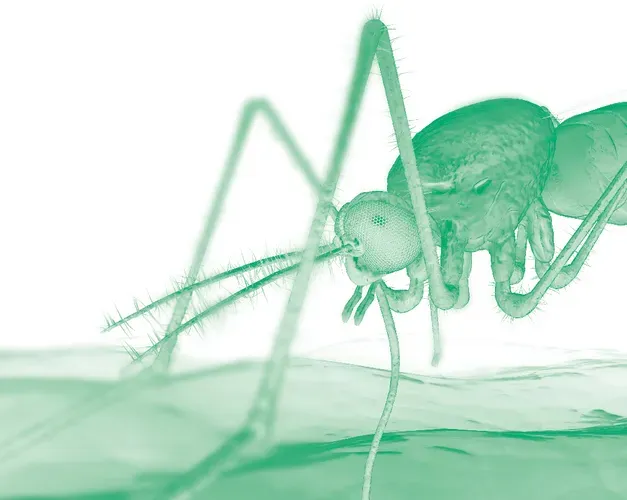Feature
New drug treatments and diagnostics for Neglected Tropical Diseases
Addressing an urgent need to develop better, more affordable vaccines and drugs for diseases that are devastating in lower income countries.
Published on 10 February 2021

More than half of the world’s population is at risk from infectious parasitic diseases such as malaria, leishmaniasis, Chagas disease, cryptosporidiosis, and human African trypanosomiasis (HAT). Existing treatments can be expensive, difficult to administer, unsafe and increasingly ineffective, as the parasites that underlie these conditions develop resistance. There is therefore an urgent need to develop better, more affordable vaccines and drugs for diseases that are devastating in lower income countries. The Drug Discovery Unit (DDU) in collaboration with the Centre for Anti-Infectives Research (CAIR) in Dundee are developing new treatment therapies that tackle these issues head on.
Malaria
Scientists in the Drug Discovery Unit have been working on new medicines for malaria in partnership with Medicines for Malaria Venture (MMV) since 2009. In 2020, the first molecule they developed completed first in human studies in novel trials by the German pharmaceutical company Merck KGaA. This molecule was effective in treating malaria with a single dose. It is active against multiple stages of the parasite lifecycle and is effective against parasites resistant to current treatments.
MMV awarded this work their 2014 Project of the Year and the research behind the compound was published in the journal Nature (2015). Further anti-malarials are being developed in Dundee.
Timothy N.C. Wells PhD ScD FMedSci FRSC, Chief Scientific Officer, Medicines for Malaria Venture
Leishmaniasis
Research in Dundee has also led to the development of novel drug treatments for visceral leishmaniasis (VL). There are estimated to be 600 million people at risk of visceral leishmaniasis (VL) across the globe with 50,000 to 90,000 new cases every year, mainly among the poorest of the poor. It is a parasitic disease spread by sandflies with high levels in India, Brazil and East Africa. There is an urgent need for new oral treatments for VL that work through novel modes of action.
The Drug Discovery Unit, in collaboration with GlaxoSmithKline, have delivered two oral preclinical drug candidates with novel and different modes of action that are in Phase I clinical trials. These oral drug candidates represent a significant step change in the availability of new drugs for treatment of this disease. This also gives rise to the possibility of developing combinations with other drugs in development, a crucial consideration for improving the effectiveness of treatment and reducing the risk of resistance.
Overall, the University of Dundee in collaboration with GlaxoSmithKline is currently contributing 40% of all new compounds in the pipeline for combination clinical trials against visceral leishmaniasis - a massive accomplishment in the drive to tackle this neglected disease.
HAT (sleeping sickness)
A further neglected tropical disease of particular focus at the University is human African trypanosomiasis (HAT). Also known as sleeping sickness, it is a fatal disease if left untreated. HAT is found in sub-Saharan Africa and is caused by trypanosome parasites that are transmitted by tsetse flies.
The research team of Professor Sir Mike Ferguson in collaboration with Professor Mark Carrington (Cambridge) identified a protein from the trypanosome surface called Invariant Surface Glycoprotein-65 or ISG65 as a diagnostic antigen for HAT. This research underpinned the development a new rapid diagnostic test for HAT commissioned by the Foundation for Innovative New Diagnostics (FIND), a global health not-for-profit alliance for diagnostics who seek to ensure equitable access to reliable diagnosis around the world.
The diagnostic is cheap to produce, can be stored at room temperature, is easy to use in remote settings and gives a result in 15 minutes from a pinprick of blood. FIND contracted the diagnostic company Abbott to manufacture the diagnostic, BIOLINE HAT 2.0, for front-line use in Africa. The test completed its roll out in early 2021.
For further information or to engage with our research, please contact: